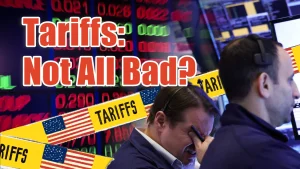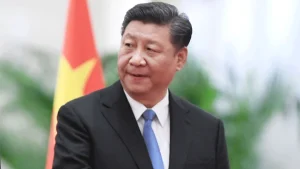“U.S. Authorities Are Good Marxists”
This article captures a compelling dialogue between renowned Chinese scholar Zhang Weiwei and former Greek Finance Minister Yanis Varoufakis, they discussed the relationship between the United States and the European Union.

Professor Zhang Weiwei:
The idea that the EU was designed by the United States is not very well known in China. For example, with Europe’s rise at one point, you might have thought that it was part of European identity to differentiate itself from the U.S. and pursue economic autonomy. Some even claim that the outbreak of the Kosovo War was, in one way or another, a U.S. attempt to undermine the Euro. Another theory suggests that the Iraq War was caused, at least in part, by Saddam Hussein’s decision to sell oil in Euros. Do you think this is a fair assessment or it’s completely wrong from your point of view, as EU relations with the United States, the more boss and the vessel state, this kind of structure?
Yanis Varoufakis:
It’s an interesting hypothesis. I believe it’s more complicated than that, and let me explain why. The Americans didn’t want to destroy the Euro; they were skeptical about it. They were saying to the Europeans, “What are you doing? If you want to federate, then federate. But don’t federate your currency.” The Americans, whatever else you may say about them, are at least smart and practically minded, and they think globally. The Germans, on the other hand, do not think globally. At that time, you could see the German mindset, which I understand and appreciate. They didn’t want to be a global power again due to the trauma of their defeat of Nazi Germany. They wanted one thing—which I think Chinese people can understand—they wanted to be the workshop of Europe. They wanted to make quality washing machines, great propellers for your ships here in the shipyards, electronics, and pharmaceuticals. They wanted to build things and make money from that without trying to dominate Europe or the world. That’s not a bad thing. However, the issue is that this mindset doesn’t account for the macroeconomic conditions needed to sustain it. Under capitalism, you need to be concerned about where the demand will come from. As Marxism has taught us, the problem with capitalism is that it tends to produce under-consumption.
From 1945, or at least from 1949 or 1950, all the way to the mid-1970s and beyond, the United States created the conditions for American cars, German cars, German pharmaceuticals, and German chemicals to have markets. The Germans didn’t need to think about it because the Americans were managing global aggregate demand. However, at some point—especially after 2008—that was no longer the case. Yet, the Germans continued to ignore the need to manage the macroeconomy. They believed that if they produced high-quality manufactured goods, they would somehow sell based purely on their desirability. That’s simply a misunderstanding of how capitalism works. The Americans were looking at the Euro and thinking, “This is going to be a problem for you—think carefully about it.”
I had an interesting conversation with Jack Lew, who was the U.S. Treasury Secretary under Barack Obama. He was very angry with the Europeans—not because they had the Euro, but for the same reason I was angry with them: they were practicing austerity for the masses while printing money for the many.
I was angry with what Europe was doing from a left-wing perspective, while he was angry from an American perspective. He understood that Europe, by imposing austerity on the German working class, was essentially pushing American industry to increase its net exports to the U.S., thereby exporting unemployment to the U.S. This made the American government very frustrated with the European Union. One reason behind the Ukraine War and Washington’s shift against Europe was that the Americans wanted to teach the Europeans, especially the Germans, a lesson: you cannot continue exporting unemployment to the U.S. simply because you’re not taking proper care of your own people.
And now, they’ve won, because the German government is in a complete state of panic. You mentioned Saddam Hussein, so let me address that. I don’t believe the U.S. invaded Iraq during the first Gulf War for reasons related to currency. What happened was, remember, it was 1991. As I mentioned before, the key difference between U.S. authorities and European authorities is that U.S. authorities are, in a way, good Marxists—not in favor of the working class, but they think in Marxist terms. They understand that capitalism tends to produce under-consumption, and American capitalism is constantly at risk of not having enough aggregate demand for its products. Essentially, it’s Das Kapital turned upside down, using capital against the working classes of the world, but still thinking in Marxist terms.
So, in 1991, the Cold War ended. If you look at the national accounts of the U.S. up until 1989 or 1990, the military-industrial complex—particularly the industry producing ammunition, cruise missiles, and Pershing missiles—accounted for up to 8% of GDP. Eight percent of national income was derived from the production of these weapons. Now, you’ve got to understand—and I’m sure you do—that Congress and the establishment are not united. Some senators represent the armaments industry and the military-industrial complex, while others represent the medical establishment, including insurance companies, medical insurance providers, and pharmaceutical companies.
 The Kosovo War, an armed conflict that took place in the Balkan region of Europe from 1998 to 1999.
The Kosovo War, an armed conflict that took place in the Balkan region of Europe from 1998 to 1999.
Now, they didn’t want the money to be spent on missiles; they wanted it spent on their own sectors. Whenever the Pentagon brought a bill to the Senate or House requesting $200 billion more, or even $1 trillion, there were senators who opposed it because they represented other interests. So, it wasn’t a unified front. While the Cold War lasted, no one in the Senate dared speak out against the Pentagon budget. But when the Soviet Union collapsed, that changed. Senators started saying, “Hang on a second, we no longer have an enemy—why do we need more missiles? Why do we need more ammunition?”
This is my speculative theory: in 1991, there was a major recession in America, and I believe there is a strong causal link between the reduction in military spending and that recession. They needed to start spending again.
Of course, their warehouses were already full of ammunition. So how do you go to the Senate and ask for more when you’ve got such a surplus? You need to use it. So, they invaded Iraq. Not only did they invade Iraq, but remember, Saddam Hussein had been working for the United States—he was an ally. During the 1980s, in the context of the Iran-Iraq War, when Saddam accidentally hit an American naval vessel and killed many U.S. soldiers, Dick Cheney, who was working for Reagan at the time, flew to meet Saddam. He patted him on the back, reassured him that they knew it was an accident, and they remained on friendly terms.
People often forget that Saddam Hussein, like Noriega in Panama, was a CIA stooge. He worked on their behalf. He launched that brutal war against Iran on behalf of the U.S. and against Ruhollah Khomeini. So, he was their man. Then they decided to sacrifice him. They even gave him the signal to invade Kuwait. Why did he want to take Kuwait? Because the war he had waged against Iran, under orders from the U.S., had been financed by Kuwait—also under U.S. direction.
So the United States has said to Saddam Hussein invade Iran and has had said to Kuwait, give Saddam the money. And then when that war ended and 1 million people died, the Kuwaits, they said to Saddam: “give me the money back.” And Saddam picked up the phone and said to Washington, “what do you mean? I’ve done this on your behalf. All these people have died.”
The Americans said, “No, we don’t care. This is your bilateral problem with Kuwait.” Angered, Saddam declared, “Kuwait is a pipsqueak country; I’ll take it.” The Americans, through their ambassador in Kuwait, intentionally signaled to Saddam, provoking him by saying that the United States would not have a problem if he took Kuwait. So, he did, and then—bang. This is all an established fact.
After Saddam Hussein’s surrender during the first Gulf War, the American air force was firing cruise missiles and various types of missiles into the desert to deplete their stock so they could replenish it. At some point, Saddam got really annoyed and announced that he would redenominate Iraqi oil in Euros. That’s when the Americans decided to take him out. You’re right, but there is a longer story that connects to the crisis of American capitalism, European capitalism, and how all of this is interconnected.
Editor: Catherine Yang




